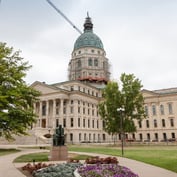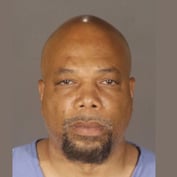Thoughts of early spring in Washington, D.C. usually conjure images of visitors clamoring to view the cherry blossoms. But spring is also the time when financial services officials head to our nation’s capital to visit their Congressmen. Members of the Independent Insurance Agents & Brokers of America (IIABA) and the North American Securities Administrators Association (NASAA) had a chance to do just that in early April when each group held its annual legislative and public policy conferences in D.C.
Independent insurance agents and brokers were busy telling lawmakers that they’d oppose any form of federal regulation of insurance. These officials–who specialize in property & casualty insurance, but dabble in financial planning as well–also spoke out against the scads of frivolous medical malpractice and asbestos lawsuits that are jacking up the cost of insurance for consumers, as well as malpractice insurance for their clients. Independent agents also worry they’re not getting a fair shake when buying or selling their practices because a practice’s value is based on intangible assets. “Independent insurance agents own the policies; therefore an independent agency’s value is in intangible assets,” says Justin Roth, director of Federal Government Affairs for the IIABA. “Following the Gramm-Leach- Bliley Act, a lot of these [agents] are consolidating or being bought out or are getting out of the business, and when you purchase a company that has intangible assets, it takes you 15 years to write off those assets.”
Roth says it’s difficult for independent agents to acquire the capital they need when considering buying other firms because “they’ll have to spread the deductions over 15 years.” And agents that are trying to sell their practice are finding “they’re not getting fair value because of the difficulty in writing off the intangibles.” To help remedy this, the IIABA urged Rep. Mark Foley (R-FL) to introduce on March 12 a bill, H.R. 1222, that “allows the acquirer to write off the first $5 million of intangible assets in the first year, and to continue to spread the rest out [over] the next 14 years. That’s our number-one tax priority for the next couple of Congresses,” Roth says.
Relief for S Corporations
As S corporations, which are taxed at the highest level, independent insurance agents and brokers also support President Bush’s proposal to lower all the tax brackets, particularly the bracket for S corps. “They’d like to see that [tax] rate come down and accelerated and made permanent,” Roth says. These officials also support the President’s proposal to expand the amount small businesses can deduct for upgrading technology in their offices, to $75,000 from $25,000.
When state securities regulators head to Capitol Hill, says Joseph Borg, director of the Alabama Securities Commission, they’ve usually got one issue on their minds: protecting investors. “Investors are pretty disillusioned by the securities markets now,” says Christine Bruenn, Maine’s Securities Administrator and president of the NASAA. “The number-one objective of securities regulators, and I hope of Congress, is to restore investor confidence.”
Dick Grasso, chairman and CEO of the New York Stock Exchange (NYSE), told securities regulators at NASAA’s 18th annual Public Policy Conference that 85 million Americans invested in the capital markets “are depending on [regulators] to restore that principal of guarantee; not a guaranteed profit, but a guarantee in the fairness of investing.” He said the “partnership” of state regulators, self-regulatory organizations, or SROs (like the NYSE), as well as those in the legislative branches is of paramount importance now “because the challenge of [restoring confidence] has never been greater, [and that is] because the breadth and depth of ownership in the United States has never been greater.”
But Grasso said regulators and self-regulators have “a lot on their plates in terms of undoing some of the misdeeds and punishing some of the people who should not have been in the business.” He said regulators should offer consumers a promise that “we will never guarantee you a profit, but [we will guarantee] integrity and fair treatment.” He also issued a stern warning: “If someone in the business of intermediation in the financial markets doesn’t deliver that, I promise you they will be out of this business.”
Grasso said a 42-year-old investor approached him recently and told him his IRA had declined by 40% to 50%. “What do I do now?” the investor asked. Grasso’s advice: “Unless you plan on retiring in two years, do not abandon the principal of creating capital in the long-term. Get a great and trusted advisor or do the homework yourself. And remember you’ve got at least another 20-plus years; yes, these are dark times, but this is still the strongest country on earth and strongest economy.”
Indeed, Bruenn told me in a separate interview that the only way to renew investor confidence is by “having strong securities regulation and bringing tough action against those who violate our laws.” State regulators are under “the constant threat of preemption,” she says, “and I think it’s a mistake in this time, when investors are reeling from the [recent series of corporate] fraud, for anyone to try and make the argument that we need less regulation rather than tougher regulation.” And collaboration by regulators is the only way “to keep the markets the fairest and the most transparent,” she says.








 May 01, 2003 at 04:00 AM
May 01, 2003 at 04:00 AM










